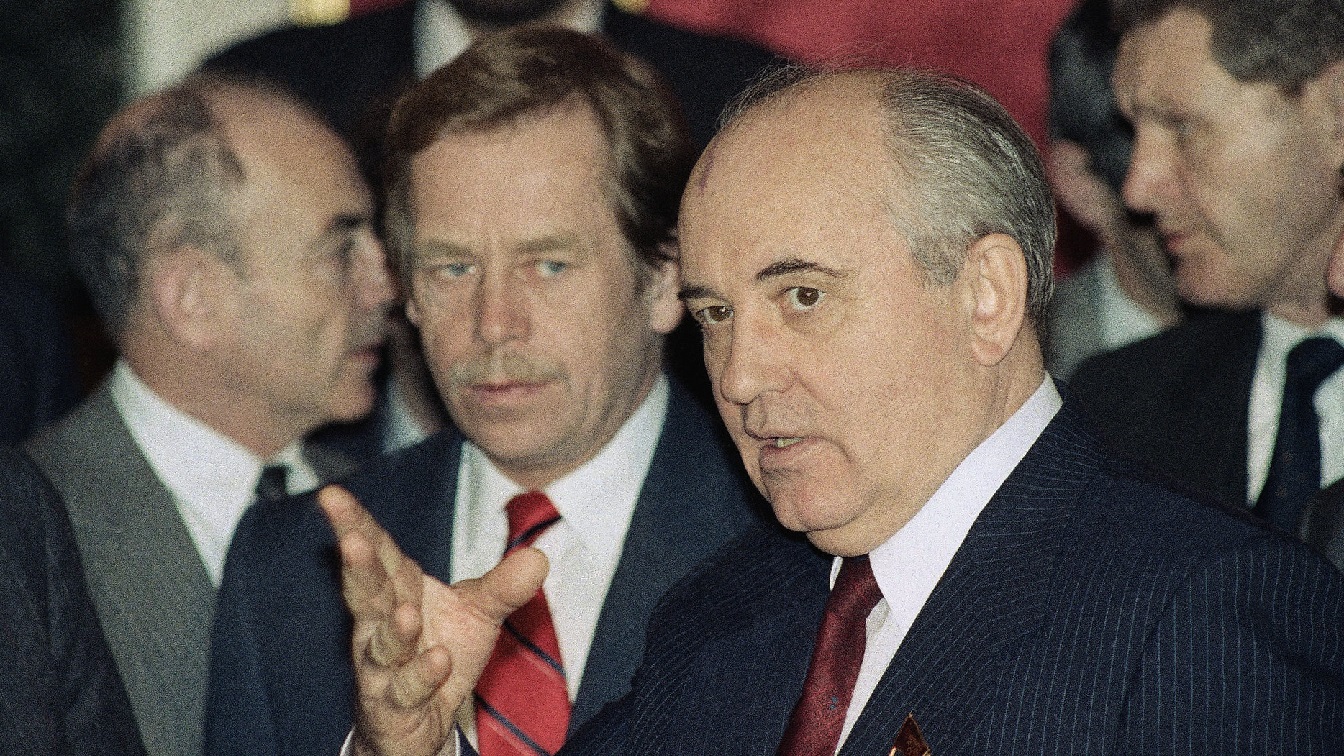When Mikhail Gorbachev became general secretary of the Communist Party of the Soviet Union in March 1985, he took command of a nation in crisis. The Soviet Union was a Potemkin village, not a mighty nation-state.
Seventy years after the Bolshevik Revolution, economic growth was stagnant, collective farms were unable to feed the people, most factories did not meet their quotas, consumers lined up for blocks in Moscow and other cities for the bare necessities, and the war in Afghanistan dragged on with no end in sight to the fighting or the deaths of thousands of young Soviet soldiers.
Gorbachev reassured Communist Party officials that his goal was to ensure that the Soviet Union began the 21st century “in a manner worthy of a great power.” Under the rubric of “uskorenye” (acceleration), he tried to speed up socialism by improving the quality of goods, retooling industry, and even reducing alcoholism through central planning. Uskorenye quickly ran out of gas, but a stubborn Gorbachev insisted, “We are not giving up on socialism; we want to make it better.” The general secretary was never a capitalist in the making. As late as 1988, he quoted “The Communist Manifesto” when asked his position on private property.
He next sought reform at the top through “perestroika” (restructuring). Always a proud Leninist, Gorbachev instituted a New Economic Plan, but the Soviet Union had no entrepreneurs or free-market experience from a capitalist past. Next, Gorbachev tried to open up the system at the bottom through “glasnost” (openness). He encouraged more public discussion of problems, including the corruption of the Communist Party. To his surprise, the Soviet people did not express their gratitude but demanded more openness. Glasnost made it easier for the citizens of the Soviet satellites and the republics within the USSR to express their nationalism and further weaken communism.
For his reforms to work, Gorbachev had to replace old ways with new ways of thinking, and that required diversity, debate, and freedom, all unknown in the Soviet Union. Gorbachev had probably not read Alexis de Tocqueville, who wrote, “Experience teaches us that the most critical moment for bad governments is the one which witnesses the first steps toward reform.” In the mid-1980s, the Soviet Union was a very bad government attempting very radical reform.
Through his life-long study of communism and his intelligence reports, President Ronald Reagan understood how seriously weakened the Soviet Union was. He pressed hard in his four summits with Gorbachev to end the Cold War at the bargaining table and not the battlefield. “Gorbachev saw the handwriting on the [Berlin] Wall,” Reagan wrote, “and opted for change,” change that would end Soviet communism.
Gorbachev was never able to anticipate the inevitable outcome of the powerful forces he was unleashing. However, he deserves credit (but not the Nobel Prize) for finally acknowledging the failures of Marxism-Leninism and the futility of Russian imperialism.
Expert Biography: Lee Edwards, distinguished fellow in conservative thought at The Heritage Foundation, is a leading historian of American conservatism, who has published more than 25 books. Edwards also is adjunct professor of politics at the Catholic University of America, where he was named Distinguished Lecturer. Edwards is co-founder of the Victims of Communism Memorial Foundation in Washington, D.C., which plans to open the Victims of Communism Museum later this year. His books include biographies of Ronald Reagan, Barry Goldwater, William F. Buckley, Jr. and Edwin Meese III as well as histories of The Heritage Foundation and the American conservative movement. His works have been translated into Chinese, Japanese, French, Hungarian, Polish, and Swedish.
This essay is excerpted from his book “A Brief History of the Cold War,” co-authored by Elizabeth Edwards Spalding. Spalding is Vice Chairman of the Victims of Communism Memorial Foundation.

